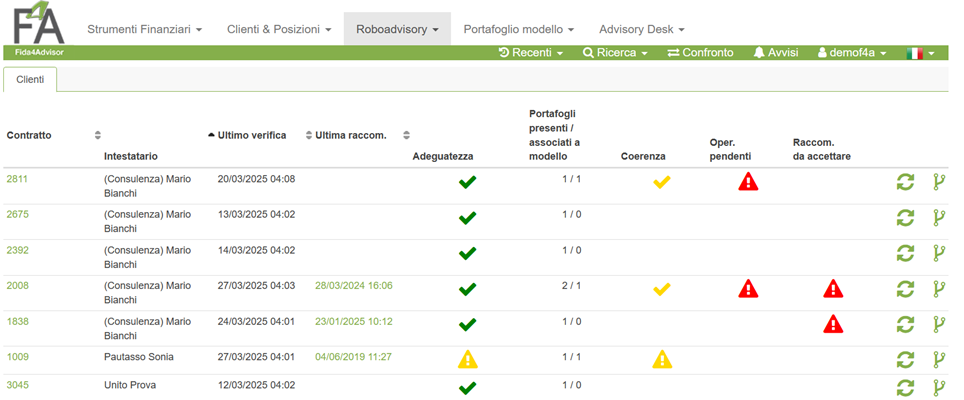In recent years, the business of financial advice has undergone a radical metamorphosis, transforming itself into an intricate journey through an intricate regulatory maze.
MiFID II, the SFDR and the European Taxonomy have redefined the paradigms of transparency, suitability and sustainability, imposing an unprecedented documentation and procedural burden on industry professionals. In this scenario of increasing complexity, technology emerges as an indispensable strategic ally, capable of transforming regulatory challenges into opportunities for professional excellence.
Regulatory layering: an ever-changing regulatory ecosystem
The layers of regulation inaugurated with MiFID II radically reshaped the operational parameters of financial advice, introducing stringent requirements in terms of transparency, suitability and information disclosure. This directive represented a genuine watershed, requiring advisors to adopt sophisticated analytical methodologies for client profiling and assessing the suitability of investment proposals.
In parallel, the advent of ESG regulations, particularly SFDR (Sustainable Finance Disclosure Regulation) and EU Taxonomy, has further diluted the scope of advisory responsibilities. These regulatory frameworks now demand a methodical assessment of sustainability factors, with the integration of environmental, social and governance parameters into decision-making processes and investment recommendations.
A critical aspect that emerges from the analysis of the regulatory framework is the less than perfect consistency between the different regulatory frameworks. The definition of financial products in Article 2 (paragraph 12) of the SFDR, for example, does not appear to be fully aligned with that under MiFID II, generating potential ambiguities in the practical application of regulatory provisions. This overlap of heterogeneous frameworks, with differing implementation timelines and sometimes not perfectly harmonized requirements, further amplifies operational complexity for financial advisors.
The paradox of modern consulting: consulting excellence vs. administrative burden
While the legislature pursues the noble goal of protecting investors and directing capital toward sustainable economic development, the flip side of the coin is apparent: the advisory business risks becoming burdened with bureaucratic requirements, distracting attention from the true essence of the profession, which is the strategic support to clients in building portfolios consistent with their needs and expectations.
Translating this regulatory framework into daily operational practice poses substantial challenges. Consultants must now:
- Implement more articulated and granular customer profiling processes
- Systematically and structurally document the recommendations provided
- Continuously monitor consistency between client risk profile and recommended investments
- Integrate ESG criteria into suitability assessments
- Ensure information transparency at all stages of the client relationship
These responsibilities translate into a considerable operational load, which is likely to take valuable time away from the core business of counseling and client relationship care.
Technological innovation as a response to regulatory challenges
It is against this complex backdrop that cutting-edge technology solutions emerge as indispensable elements of modern and efficient consulting. Specialized digital platforms offer crucial support, transforming potential regulatory obstacles into levers of competitive differentiation.
New directives have forced advisory professionals to evolve, orienting them toward increasingly structured and analytical information management. MiFID II, with its emphasis on client profiling and product governance, has made it imperative to adopt tools capable of tracking every step of the advisory process. In parallel, the SFDR and the European Taxonomy added an additional layer of complexity, requiring advisors to verify the sustainability of recommended instruments with unprecedented meticulousness.
In this context, integrated financial advisory platforms enable:
- Automate compliance processes, significantly reducing the risk of human error
- Implement proactive alert systems to identify anomalies or regulatory misalignments
- Generate compliant documentation in an automated manner
- Integrate regulatory updates into operational processes in real time
FIDAworkstation: the technology architecture for regulated consulting
FIDAworkstation is positioned as a sophisticated solution to address regulatory complexity in financial advice. This web-based, modular, multi-asset, and scalable platform offers an integrated ecosystem of specific tools to efficiently manage the challenges imposed by the current regulatory framework.
L’architettura modulare di FIDAworkstation comprende, tra gli altri: The modular architecture of FIDAworkstation includes, among others:
- Data: enables the selection and monitoring of financial instruments, ensuring access to up-to-date and complete information for informed and compliant advice.

- Client: integrates a CRM for client data, MiFID II-compliant profiling questionnaires, risk profiling and contract management, ensuring proper profiling of clients according to regulatory requirements.
- Roboadvisory: automates and simplifies the advisory process, from the pre-contract stage to ongoing portfolio management.
- Asset Allocation: supports the creation of model portfolios in asset classes or funds, with a fund substitution engine that facilitates the construction of portfolios tailored to the client’s profile.

- Portfolio: enables management of accounting portfolios, simulations for percentage allocations, instrument optimization and MiFID ex ante testing, ensuring regulatory compliance of investment proposals.
- Instruments: offers customizable lists, alert systems, simulators for accumulation plans and correlation matrices, providing advanced tools for in-depth analysis.
Through these integrated modules, FIDAworkstation offers a powerful asset and investment tracking tool, allowing you to quickly view products, indexes, real, simulated portfolios, and other items within an intuitive interface that reports analysis at various timelines, with the ability to specify the date at which statistics are to be calculated. The reports generated are fully customizable and can be exported in PDF format, facilitating communication with clients and ensuring document compliance.
The evolution toward proactive compliance: anticipate rather than react
Traditionally, the approach to compliance has always been configured in a reactive logic: the advisor adapts to new regulations with tools that are often handcrafted, addressing regulatory updates with buffer solutions. Today, thanks to advanced software such as FIDAworkstation, it is possible to anticipate regulatory developments by implementing a proactive compliance model.
The shift from reactive to proactive compliance is probably the most significant added value offered by contemporary technology solutions. Instead of responding to regulatory compliance after the fact, advisors can anticipate regulatory needs by integrating emerging requirements into their operational processes in advance.
In the landscape of specialized platforms for financial advice, several tools prove particularly effective in addressing regulatory challenges:
- Advanced customer profiling modules: systems that integrate multidimensional risk assessments, including behavioral metrics and sustainability preferences
- Adequacy assessment tools: tools that automatically check consistency between customer profile and recommended products

- Regulatory monitoring dashboards: interfaces that aggregate regulatory updates relevant to advisory activities
- Automated regulatory reporting generators: systems that produce compliant documentation for different regulatory requirements
- ESG analyzers: tools that assess the degree to which portfolios are aligned with sustainability criteria
Audit trail systems: solutions that track and document each stage of the advisory process
The next steps for IT solutions in the financial advisory industry will focus on the advanced integration of artificial intelligence and machine learning, with the goal of anticipating critical issues in the management of client portfolios and early warning of deviations from regulatory parameters. These technological developments promise to further reduce the risk of noncompliance by providing advisors with proactive tools to manage regulatory complexity. This will free up valuable resources, allowing professionals to focus on investment strategies and service customization, without being trapped in bureaucratic burdens.
The future of advice in the era of advanced regulation
Regulatory tightening should not be perceived as an insurmountable obstacle, but as a strategic opportunity to raise the quality level of financial advice. Next-generation digital platforms such as FIDAworkstation represent the tipping point for transforming compliance from an administrative burden to a genuine added value, enabling professionals to offer service excellence in line with market expectations and the sophisticated needs of contemporary clients.
Those who can grasp this evolution will not only ensure their own regulatory compliance, but also position themselves as a cutting-edge advisor, capable of combining technology, customization and regulatory rigor. Technology thus becomes not only an operational facilitator but a true amplifier of advisory capabilities, enabling professionals to focus on the essence of their role: providing valuable advice to their clients.
In a future of further regulatory developments, integrated technology tools such as FIDAworkstation will continue to play a crucial role, enabling advisors to navigate the complex regulatory maze with confidence, turning compliance obligations into tangible opportunities for growth and market differentiation.
What to expect now?
Financial advice is now at the center of a momentous transformation, driven on the one hand by regulatory evolution and on the other by technological innovation. In this scenario, the advisor who is able to embrace change by equipping himself with cutting-edge technological tools can transform regulatory burdens into an opportunity to elevate the quality of his service.
Integrated technology platforms such as FIDAworkstation represent not only a solution to current regulatory complexities, but also a strategic investment to face future evolutions with peace of mind. The shift from reactive to proactive compliance, made possible by these solutions, will enable professionals to free up valuable resources, bringing back to the center of consulting activity what really matters: the relationship with the client and the construction of personalized and effective investment strategies.
Monica F. Zerbinati

Request the free trial by emailing welcometeam@fidaonline.com